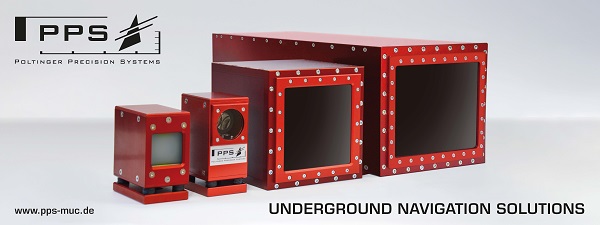Austria : Semmering Tunnel will be powered by electricity generated from tunnel's seepage water
ASFINAG, The Austrian public company which plans, finances, builds, maintains and collects tolls for the Austrian autobahns has announced a very innovative project for operating one of its tunnel.
According to the press release, the almost 4 kilometer long Semmering Tunnel on the S6 will be powered by green energy. A small hydroelectric power plant nearby will generate 490 megawatt hours of electricity, more than 40% of the electricity needed by the tunnel. The flash news is; power plant's water will come from the Semmering Tunnel's seepage water!
Please below the automated translation of original German language release.
7.10.2022
Small hydroelectric power station supplies S 6 Tunnel Semmering with green energy
Tunnel seepage water drives the power plant
The annual energy consumption of the Semmering tunnel on the S 6 expressway of the same name is around 1,100 megawatt hours. The new ASFINAG small hydroelectric power station supplies around 490 megawatt hours of clean electricity and thus covers up to 45 percent of the energy requirements of the almost four kilometer long tunnel. The source of energy is the seepage water from the Semmering tunnel.
“In terms of generating our own electricity for our locations, we are already taking a very successful path with photovoltaic systems. At Tunnel Semmering we rely on water to generate clean energy. For this we use the naturally occurring mountain water in the power plant. These are converted into sustainable clean energy for self-consumption. We are thus setting another milestone in achieving our goal of being self-sufficient in terms of electricity by 2030,” says ASFINAG CEO Hartwig Hufnagl.
Tunnel seepage water is naturally occurring mountain water. These are normally derived unused from the tunnel. The situation is different in the new small hydroelectric power plant on the S 6. ASFINAG Managing Director Andreas Fromm explains how electricity generation works: “A penstock is used to direct the mountain water into the power house. These are processed via a Pelton turbine and then fed into the Greisbach. The electrical energy generated in this way is transmitted to the tunnel control room via underground cables, where it is fed into the low-voltage grid and used 100 percent for the operating and safety technology of the tunnel.”
The working capacity of the Pelton turbine is 490 megawatt hours per year. This guarantees more than 40 percent of the power supply for the Semmering Tunnel. As before, the required residual electricity will continue to be obtained from certified green electricity providers - according to the Austrian environmental label UZ46. ASFINAG has invested 1.7 million euros in this small hydroelectric power station.
The small hydroelectric power station is located in the area of the east portal of the Semmering Tunnel between Mürzzuschlag and Ternitz. The Semmering Tunnel itself is exactly 3.5 kilometers long. This makes it the longest tunnel in the course of the six motorway tunnels in the Semmering tunnel chain on the S 6.
State-of-the-art BIM planning
The entire planning of the technical facilities such as the turbine or the generator was carried out in the three-dimensional BIM planning project (Building Information Modeling). BIM makes it possible to carry out each detailed planning step digitally before implementation takes place. This reduces planning inaccuracies to a minimum and makes assembly work much easier. The future operational management of the system is also optimized by the BIM digital plans.
Energy strategy of ASFINAG
ASFINAG is an indispensable partner for climate change. That is why we invest in sustainable technologies. We have only been using electricity from renewable sources since 2016. However, in order to actively promote the topic of sustainable energy generation, the central strategy "Sustainability, greening and climate protection" was implemented in the ASFINAG group management in 2019. It is our goal to reduce our own energy requirements and to constantly expand renewable energy systems in order to be self-sufficient in terms of electricity by 2030.
cover tunnel photo by: Matt Brown from London, England / CC BY
Copyright 2019-2024 TunnelContact.com








